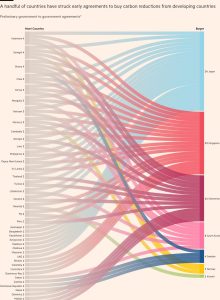The sperm donor bros of tech
Stay informed with free updates
Simply sign up to the Social affairs myFT Digest — delivered directly to your inbox.
Before he was arrested in France for failing to adequately moderate criminal activity on his social media app, tech billionaire Pavel Durov was known for three things: founding Telegram, posting thirst-trap photos on Instagram and fathering over 100 children.
The last fact is a relatively recent revelation. This summer, Durov surprised his online followers by revealing that a sperm donation he made to a fertility clinic had resulted in children conceived in 12 countries by more than 100 couples. He was, he noted with pride, “high quality donor material”. He then declared plans to “open source” his DNA so that his biological children could find one another more easily. It is a plan his detention has presumably derailed.
What could possess someone to boast of fathering a biblical number of children? Durov claimed that he wanted his announcement to destigmatise donation. Its strangeness is likely to have had the opposite effect.
Yet Durov is not alone in revelling in his super donor status. While fertility clinics in many countries prevent people from donating too many times, not everyone abides by the rules. Last year, a Dutch crypto investor and YouTuber suspected of fathering more than 550 children via multiple clinics had to be ordered by courts to stop. In the US, a fertility doctor in Indianapolis was found to have covertly substituted patient samples for his own throughout the 1970s and 80s, resulting in dozens of children.
There are also those willing to sidestep regulations and arrange for private donations with strangers they meet online. Kyle Gordy, who runs the Facebook group “Sperm Donation USA” (26,000 members) told Netflix he thinks he has around 70 children.
This genetic largesse is presumably down to a mix of narcissism, altruism and dreams of immortality without the messy business of actually parenting a child. Some may also believe their genes are more valuable than most and that exceptionalism can (and must!) be passed down.
Others may hope to prove virility in middle age. Tech entrepreneur Bryan Johnson, known for his extreme efforts to biohack his physical age, has undergone genital shock therapy and likes to keep social media followers appraised on the health of his sperm.
There are obvious drawbacks to one person fathering a large number of children. As they grow up, the children face the risk of encountering unknown half siblings in the wild. This is why the UK caps donation to 10 families. It is the reason Iceland, a small island of about 393,000 people, has an online database called Íslendingabók that allows people to cross-check their lineage before things become serious with a prospective romantic partner.
But to a high-minded subset, the risk of having no children is a more pressing problem. The most famous example, as is so often the case, is Elon Musk, who has fathered at least 12 children with three mothers. The latest, revealed this summer, was born to Shivon Zilis, an executive at his brain computer interface company Neuralink. He previously had twins with Zilis around the same time as the birth of a child with his then partner, the musician Grimes.
Musk’s children will do little to shift the world’s 8.2bn population count, but they appear to ease his own anxiety about growth rates. “A collapsing birth rate is the biggest danger civilization faces by far” he wrote on Twitter in 2022.
His support for large families led to the rumour that he was funding his own fertility clinic — something he denied to the FT two years ago. Bloomberg later reported that he had donated money to the University of Texas and that this funding was being used to establish the Population Wellbeing Initiative, a research group whose interests include fertility and population growth.
One upside to Musk’s vocal pronatalism is that it appears to have shone a spotlight on assisted reproductive technology. This at a time when the US Republican party that Musk supports is divided over the future of IVF.
PitchBook reports that 2024 is expected to be a record year for fundraising in the so-called femtech sector, surpassing 2021’s high of $1.9bn. Well known tech names are investing. OpenAI co-founder Sam Altman has backed start-up Conception, for example, which is researching the possibility of same-sex parents having a child together.
The most generous interpretation of the tech sector’s interest in genetic legacies is that it makes sense for a group already preoccupied with building for the future. The ungenerous version is that it has shades of a god complex. The most likely conclusion is that it must be a mix of both.
#sperm #donor #bros #tech




